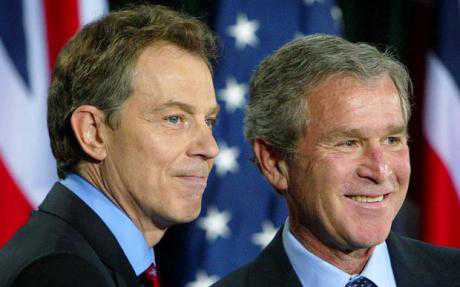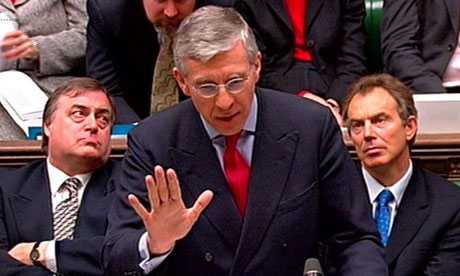My journalist journey extends to more than 25 years, starting from my capital Baghdad, which is the center of my culture and the source of my academic achievement and my beginnings for journalistic work by passing through the capitals of states such as Cairo, Amman, Damascus, Ankara ,Baku, Nicosia and Washington.
During this journalist trip, God enabled and helped me to interview international politics ,thinkers And some presidents of state, ministers and diplomats, Iraqis, Arabs, Turks, Americans and the British.
However, this trip sometimes brought me some troubles from the closed minds and the mercenaries, but my passion for my profession gave me the continuity in the journalistic work.

Among the dozens of television interviews that I conducted and I can’t express and reveal them with a few words, which left inside me a passionate basis for the press and media field, is my distinguished and historical meeting with former Turkish Prime Minister Bulent Ecevit in 2004 in his house in the Oran district of the Turkish capital, Ankara.
Bulent Evevit , who was born in 1925 in Istanbul and died in 2006, and his presidency took over the ministers of Turkey for different periods until 2002 .He was not only a political man, but was an author, poet, writer and translator.
He graduated from Robert American College in Istanbul in 1944, where he studied English and literature. During interview ,Bulent Ecevit was speaking Turkish literary language in elegant words and political phrases characterized by depth and Easter, and he was the last press interview in his political life.
Bulent Ecevit was an accomplished politician who played an important role in Turkish and international policy, When he was prime minister in 1974 ,he led the liberation of the Turkish island of Cyprus which was called the Cyprus peace process .. He was also more popular politician, as he described as popular Ecevit due to his sympathy and solidarity with workers and peasants.
The meeting I held with his excellency carries many meanings, and it was a historical document concerning the Turkmen people in Iraq. During the interview Bulent Ecevit mentioned about the number of visits to Iraq and his meeting with former Iraqi President Saddam Hussein. He discussed that he met Saddam Hussein three times for a period of three hours at a time, and that was before, during and after the first American attack in the first Gulf war (the eighties and nineties of the last century).

Here, in one of his meetings with Saddam Hussein, Bulent Ecevit revealed the controversial topic, that related to the Turkmen people in Iraq and how Saddam Hussein intensified and raged when he defended and demanded the rights of Turkmen in Iraq.
We will now narrate some of the important dialogue excerpts that took place between me and Mr. Bulent Ecevit , the former Turkish Prime Minister in Ankara, on 2004 on the issue of his defense of the Turkmen rights upon his meeting with former Iraqi President Saddam Hussein.

Q/ Mr.Prime Minister … As one of the most prominent politicians in Turkey … You met with former President Saddam Hussein and you discussed with him the conditions of the Turkmen in Iraq, and you defended their rights … Can we return to that date and know the details of that meeting?
A/ Of course, I met Saddam Hussein three times for a period The year … Saddam spoke to me about the damage to Iraq and all fields after the first American attack … especially since Iraq had just emerged from a long war with Iran … He also spoke to me about the resistance that the Iraqis showed regarding the American attack and its repercussions on The country … and outside these meetings, I had special visits with my wife to some of the role of our Turkmen brothers … We visited one of the children’s hospitals and we met with the sick children and their mothers and their parents … I saw closely what the Iraqi people suffer from difficult conditions and a cruel economic blockade and other Inherited social and economic problems.
I also noticed how the Iraqis were able, during a short period of time, to achieve an important technological advancement despite the difficult circumstances that we referred to were surrounding them from every side … and I realized at the time that the Iraqi people in general and Turkmen in particular are able to build their homeland and practice democracy if they have the appropriate opportunity for that. .
In one of my previous meetings with Saddam Hussein … I explained to him that the Turkmen were not at any time a problem for the Iraqi regime or the Iraqi governments … and they did not harm anyone, neither against power nor against any other social component … and explained to him It is better to give them their entire legitimate rights … or deal with them in a more flexible way … and explained to him how if the Turkmen rights were given … this step will improve from the image of the regime abroad and that they (Turkmen) will be able to persuade some opposition bodies in Outside of her position and changed her discourse.
And by the surprise (stood) Saddam from his council in a troubled manner … and my friend and my friend stood as well … then Saddam left us and left the hall without uttering one word.
We and the journalist stood up in amazement … Then they entered a group of accompanying and officials and asked us about the reasons for Saddam’s departure from the place so quickly … and we answered them in the negative … and then they also left the place … and then they (the accompanying) returned again and told us Saddam went to pray and will not return again .
I was insisting to say all my words and opinions of Saddam as a matter of political and moral advice, and I believe that these tips would have been in the interest of the Iraqi people first and the same system second … except that it seems as if the regime is not prepared to accept such tips … I was aspiring that The Iraqi people receive their full rights because they are a civilized and authentic people, and I thought that these advice would be in the interest of Iraq and Turkey together.



